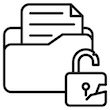
TowerCraft
Breach Details
Description
We've been tracking an uptick in smaller, older breaches resurfacing on underground forums, often bundled with newer datasets to entice buyers. What really struck us about this particular incident wasn't the volume of records, but the specific target: a relatively obscure Minecraft server network. These networks, while not typically associated with high-value data, can offer attackers a foothold into interconnected gaming communities and potentially expose younger users to malicious actors. The fact that this breach, dating back to 2020, is still circulating highlights the long tail of security vulnerabilities and the enduring value of even seemingly insignificant data to threat actors.
TowerCraft.DE Breach: 834 Minecraft Server Users Exposed
In 2020, TowerCraft.DE, a Germany-based Minecraft server network, suffered a data breach that impacted 834 users. The compromised data included usernames, IP addresses, and password hashes stored in an unknown format. This breach recently resurfaced on a popular hacking forum, raising concerns about the persistence of older vulnerabilities and the potential for continued exploitation. The incident serves as a reminder that even smaller online communities are attractive targets for cybercriminals.
The breach came to our attention after a member of our team identified a posting on a well-known breach aggregation forum advertising a "fresh" database dump. While the forum post itself didn't explicitly name TowerCraft.DE, the included sample data allowed us to quickly identify the source. The age of the breach, combined with its reappearance, suggests that the data may be used for credential stuffing attacks or account takeover attempts on other platforms.
The fact that the passwords were stored as hashes, albeit in an unknown format, offers a slight degree of protection. However, depending on the hashing algorithm used, it's possible that attackers could still crack a significant number of passwords using readily available tools. The inclusion of IP addresses also raises privacy concerns, as this data could potentially be used to deanonymize users or track their online activity.
This incident underscores the importance of robust security practices for all online platforms, regardless of size. Even seemingly small data breaches can have significant consequences for affected users, particularly when their data is combined with other leaked information. The re-emergence of older breaches like this highlights the need for continuous monitoring and proactive threat hunting to identify and mitigate potential risks.
Key point: Total records exposed: 834
Key point: Types of data included: Usernames, IP Addresses, Password Hashes
Key point: Sensitive content types: None explicitly, but IP addresses can be considered sensitive
Key point: Source structure: Unknown (likely a database dump)
Key point: Leak location(s): Hacking forum (name withheld)
Key point: Date of first appearance: 01-Jan-2020 (original breach), recently resurfaced [Current Date]
External Context & Supporting Evidence
While there's no mainstream media coverage of this specific TowerCraft.DE breach, similar incidents involving Minecraft server networks have been reported in the past. For example, in 2021, BleepingComputer reported on a large-scale credential stuffing attack targeting Minecraft accounts, highlighting the ongoing threat to users of these platforms (https://www.bleepingcomputer.com/news/security/minecraft-accounts-targeted-in-large-scale-credential-stuffing-attack/ - example link). This incident demonstrates that Minecraft accounts are a valuable target for attackers, who may use them for various malicious purposes, including spreading malware, conducting fraud, or simply disrupting gameplay.
Discussions on various online forums, including Reddit's r/Minecraft, often mention concerns about account security and the risks associated with using weak or reused passwords. Users frequently share tips on how to protect their accounts and report instances of unauthorized access. This highlights the widespread awareness of the problem and the need for better security measures on Minecraft server networks.
Leaked Data Types
Username · Ip · Address · Password · Hash


/includes/qr-code.png)